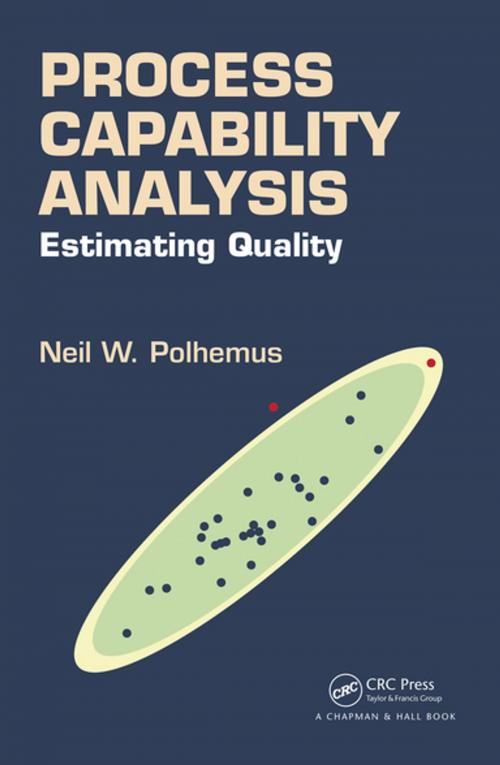Process Capability Analysis
Estimating Quality
Nonfiction, Science & Nature, Technology, Quality Control, Business & Finance, Industries & Professions, Mathematics, Statistics| Author: | Neil W. Polhemus | ISBN: | 9781315405728 |
| Publisher: | CRC Press | Publication: | November 22, 2017 |
| Imprint: | Chapman and Hall/CRC | Language: | English |
| Author: | Neil W. Polhemus |
| ISBN: | 9781315405728 |
| Publisher: | CRC Press |
| Publication: | November 22, 2017 |
| Imprint: | Chapman and Hall/CRC |
| Language: | English |
Process Capability Analysis: Estimating Quality presents a systematic exploration of process capability analysis and how it may be used to estimate quality. The book is designed for practitioners who are tasked with insuring a high level of quality for the products and services offered by their organizations. Along with describing the necessary statistical theory, the book illustrates the practical application of the techniques to data that do not always satisfy the standard assumptions.
The first two chapters deal with attribute data, where the estimation of quality is restricted to counts of nonconformities. Both classical and Bayesian methods are discussed. The rest of the book deals with variable data, including extensive discussions of both capability indices and statistical tolerance limits. Considerable emphasis is placed on methods for handling non-normal data. Also included are discussions of topics often omitted in discussions of process capability, including multivariate capability indices, multivariate tolerance limits, and capability control charts. A separate chapter deals with the problem of determining adequate sample sizes for estimating process capability.
Features:
Comprehensive treatment of the subject with consistent theme of estimating percent of nonconforming product or service.
Includes Bayesian methods.
Extension of univariate techniques to multivariate data.
Demonstration of all techniques using Statgraphics data analysis software.
Neil Polhemus is Chief Technology Officer at Statgraphics Technology and the original developer of the Statgraphics program for statistical analysis and data visualization. Dr. Polhemus spent 6 years on the faculty of the School of Engineering and Applied Science at Princeton University before moving full-time to software development and consulting. He has taught courses dealing with statistical process control, design of experiments and data analysis for more than 100 companies and government agencies.
Process Capability Analysis: Estimating Quality presents a systematic exploration of process capability analysis and how it may be used to estimate quality. The book is designed for practitioners who are tasked with insuring a high level of quality for the products and services offered by their organizations. Along with describing the necessary statistical theory, the book illustrates the practical application of the techniques to data that do not always satisfy the standard assumptions.
The first two chapters deal with attribute data, where the estimation of quality is restricted to counts of nonconformities. Both classical and Bayesian methods are discussed. The rest of the book deals with variable data, including extensive discussions of both capability indices and statistical tolerance limits. Considerable emphasis is placed on methods for handling non-normal data. Also included are discussions of topics often omitted in discussions of process capability, including multivariate capability indices, multivariate tolerance limits, and capability control charts. A separate chapter deals with the problem of determining adequate sample sizes for estimating process capability.
Features:
Comprehensive treatment of the subject with consistent theme of estimating percent of nonconforming product or service.
Includes Bayesian methods.
Extension of univariate techniques to multivariate data.
Demonstration of all techniques using Statgraphics data analysis software.
Neil Polhemus is Chief Technology Officer at Statgraphics Technology and the original developer of the Statgraphics program for statistical analysis and data visualization. Dr. Polhemus spent 6 years on the faculty of the School of Engineering and Applied Science at Princeton University before moving full-time to software development and consulting. He has taught courses dealing with statistical process control, design of experiments and data analysis for more than 100 companies and government agencies.















